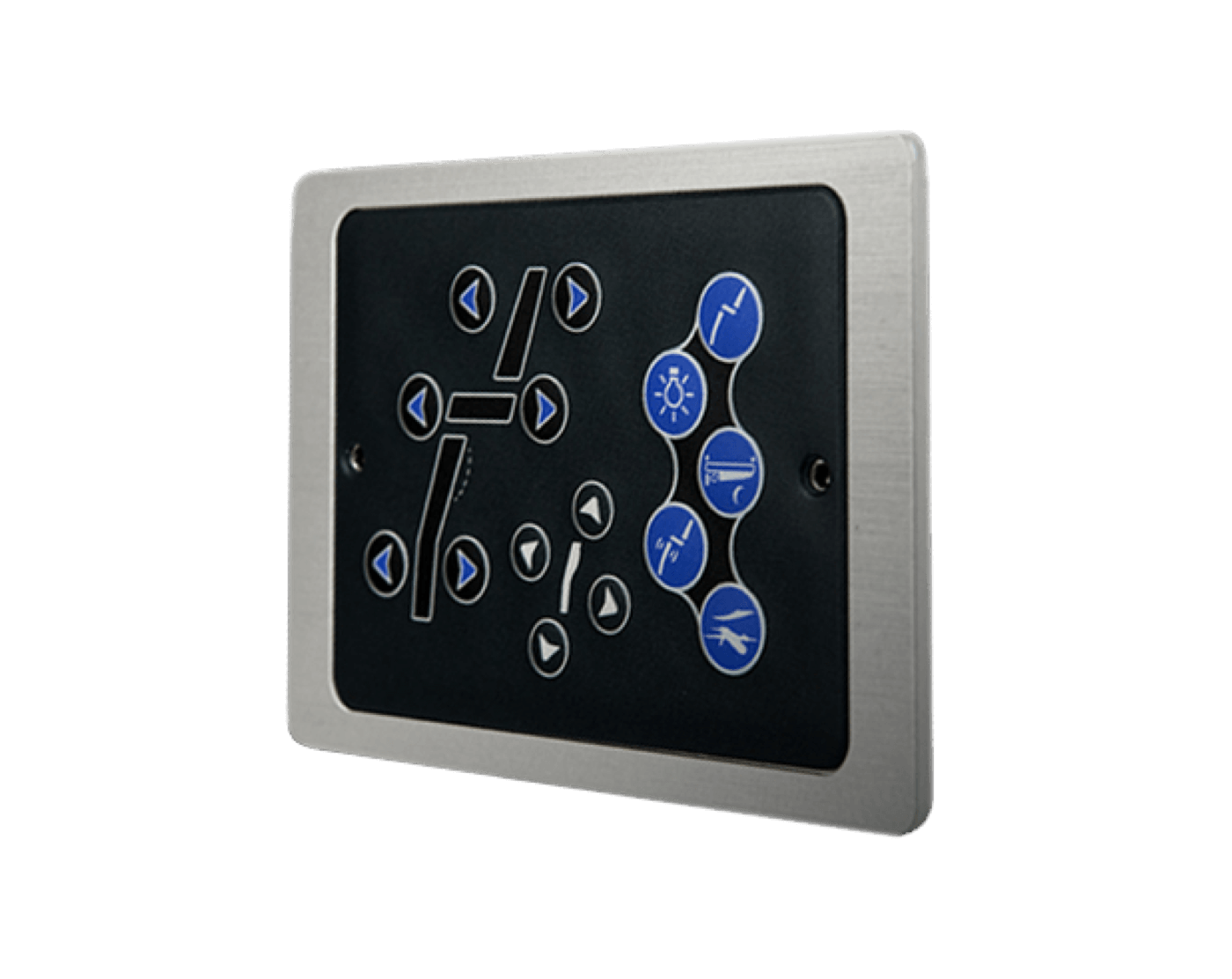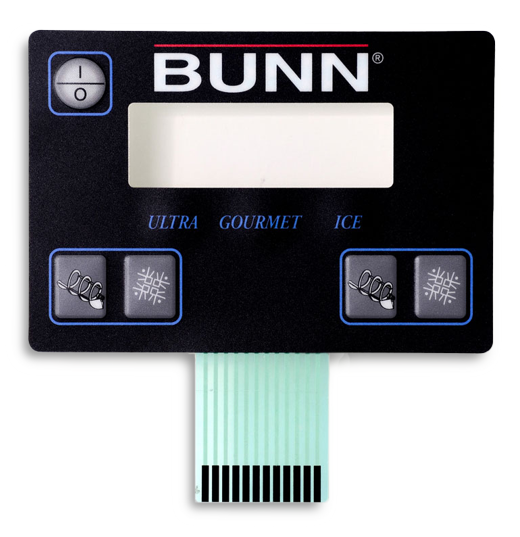How Membrane Switches Improve Durability in Harsh Environments
Wiki Article
Understanding the Importance of Membrane Switches in Customer User Interfaces
Membrane buttons are integral elements in the layout of effective individual interfaces, helping with not only functionality however likewise improving visual allure and user interaction. Their distinct attributes, such as resistance to adjustable layouts and environmental variables, make them appropriate for a varied range of applications throughout multiple industries. As we discover the future patterns and numerous advantages connected with Membrane technology, it comes to be clear that these buttons are greater than just elements; they represent a convergence of innovation and functionality. The implications of this innovation on user experience deserve checking out even more.What Are Membrane Switches?

The spacer layer, which contains glue residential or commercial properties, permits the separation of the circuit layer from the overlay, guaranteeing that the switch continues to be in a non-activated state up until pressed. When pressure is put on the overlay, it compresses the spacer layer, linking the gap and finishing the circuit in the underlying layer. This layout not just minimizes the physical room required for typical mechanical switches but also improves the toughness of the tool, as Membrane buttons are normally resistant to dust, dampness, and other environmental elements.
Typically located in applications varying from consumer electronic devices to medical gadgets, Membrane buttons are important to modern-day innovation, offering a easy to use and reliable interface that straightens with contemporary design requirements.
Advantages of Membrane Buttons
While many button innovations exist, Membrane Switches deal distinct benefits that make them especially desirable in various applications. Among the key benefits of Membrane buttons is their compact layout, which allows for space-saving executions in devices where realty is restricted. Their slim profile not only boosts visual appeal but additionally assists in light-weight building.One more substantial benefit is their resistance to environmental factors. Membrane switches are typically secured versus dampness, dust, and impurities, making them perfect for usage sought after settings, such as clinical devices and commercial devices. This durability expands the life expectancy of the switch, minimizing upkeep costs and improving integrity.
Moreover, Membrane buttons can be customized to meet certain layout requirements, integrating one-of-a-kind graphics and colors that improve individual communication. Their tactile feedback choices can additionally be customized to give an enjoyable customer experience. In addition, Membrane buttons are cost-effective, especially in high-volume applications, as they can be created successfully.
Applications in Different Industries

In the customer electronic devices field, Membrane buttons are widespread in tools such as microwaves, cleaning devices, and remotes. Their responsive feedback and visual alternatives boost customer experience while offering a sleek, contemporary appearance. Furthermore, automobile makers use Membrane switches in dashboard controls and infomercial systems, where space is limited, and customer interaction is critical.
Furthermore, the industrial sector leverages Membrane buttons in control panels for machinery and equipment, enabling instinctive operation in frequently extreme environments. Their resistance to chemicals and wetness ensures durability and reliability in these applications. On the whole, the versatility of Membrane Switches contributes significantly to their prevalent use, making them crucial in various technical domain names.
Design Factors To Consider for Membrane Buttons

When making Membrane switches, several crucial factors to consider have to be considered to ensure ideal functionality and individual experience. The selection of products is critical; selecting resilient, top notch substratums can boost the button's long life and resistance to ecological aspects such as wetness and temperature fluctuations.
Secondly, the design of the visuals overlay need to focus on clearness and simplicity of use. click resources Symbols and message need to be readable, and the design ought to facilitate intuitive communication (membrane switches). Furthermore, tactile feedback is essential; including a responsive dome or other mechanisms can boost the individual experience by offering physical confirmation of activation
An additional crucial element is the button's electric performance. Developers need to guarantee that the conductive traces are properly made to reduce resistance and prevent signal interference. This involves analyzing the needed actuation pressure and making sure compatibility with the digital elements they will interface with.

Future Fads in Membrane Technology
As innovation remains to advance, Membrane click now buttons are poised to develop considerably, driven by innovations in products and manufacturing techniques. One arising fad is the incorporation of sophisticated products, such as flexible substrates and conductive inks, which boost toughness and decrease the overall weight of Membrane buttons. These materials not just enhance the tactile feedback yet likewise enable the style of buttons that can hold up against harsher ecological conditions.Furthermore, the combination of touch-sensitive modern technologies is changing typical Membrane Switches into more interactive user interfaces. Capacitive touch sensors embedded within Membrane button panels can offer a much more receptive and instinctive user experience, lining up with the growing demand for smooth, modern designs in consumer electronics.
Furthermore, developments in printing methods, such as digital and 3D printing, enable rapid prototyping and customization of Membrane buttons. This adaptability permits suppliers to react faster to market needs and customer choices.
Lastly, sustainability is coming to be a significant focus, with suppliers exploring environmentally friendly materials and processes. As these trends unfold, the future of Membrane innovation guarantees enhanced functionality, visual allure, and environmental obligation, solidifying their duty in innovative customer interfaces throughout various industries.
Verdict
In verdict, Membrane Switches represent an essential component in the layout of user interfaces, incorporating functionality with visual adaptability. As developments in modern technology continue, the advancement of Membrane switches is anticipated to further fine-tune customer interfaces, driving technology and improving usability in a progressively complex technological landscape.Membrane buttons are essential elements in the layout of effective individual interfaces, promoting not only performance yet also improving visual allure and user interaction.Membrane Switches serve as an important element in numerous user interfaces, helping with a smooth communication in between users and electronic gadgets.While many button modern technologies exist, Membrane Switches deal distinctive benefits that make them particularly desirable in different applications.Additionally, Membrane buttons can be tailored to meet specific design demands, integrating one-of-a-kind graphics and shades that boost individual communication.In final thought, Membrane Switches represent a crucial element in the layout of customer interfaces, incorporating capability with visual adaptability.
Report this wiki page